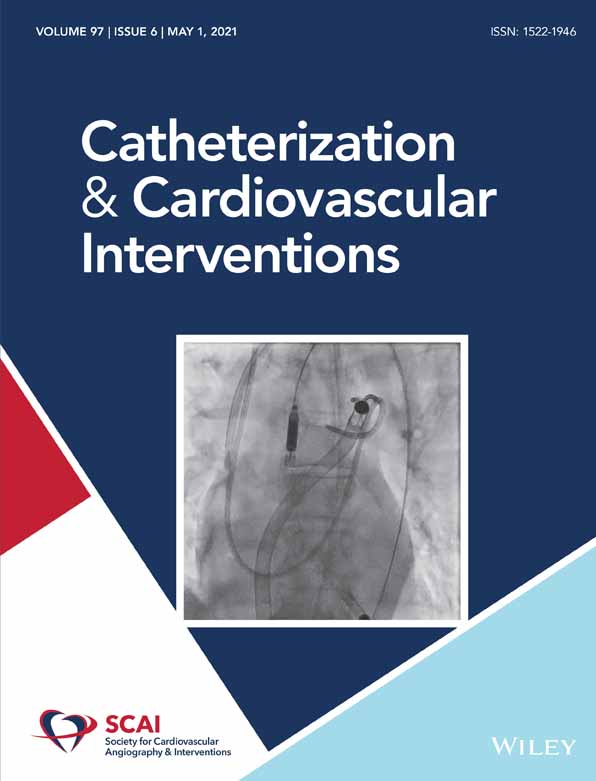Acute kidney injury after MitraClip implantation in patients with severe mitral regurgitation
Abstract
Introduction
Percutaneous mitral valve repair (PMVR), such as MitraClip, is performed on high-risk patients and involves hemodynamic alternations that may cause acute kidney injury (AKI). We aimed to evaluate the incidence of AKI, predictors for developing AKI and the correlation with mortality after MitraClip.
Methods
We performed a retrospective analysis of collected data from patients who underwent PMVR in two tertiary medical centers in Israel to identify factors associated with AKI.
Results
The study population included 163 patients. The median age was 77 years; 60.7% of patients were male. The median eGFR significantly decreased post-procedure from 49 (35–72) to 47.8 (31–65.5) ml/min/1.73 m2 (p < .001). Forty-seven patients (29%) developed AKI. None of the patients who developed AKI required hemodialysis. Predictors of AKI included: baseline eGFR ≤30 ml/min/1.73 m2, severity of residual MR, TMPG>5 mmHg, diuretic use, and re-do procedures. Among the patients who developed AKI there was an improvement in kidney function during follow-up, and creatinine levels significantly decreased from a peak mean creatinine of 179.5 (143–252) mmol/l to 136 (92–174) mmol/l (p < .001). However, 19% (9 out of 47) of patients experienced partial recovery and their creatinine level, when compared to their baseline, remained elevated. One-year survival showed a trend for increased mortality among patients who developed AKI (86.2% vs. 80.9%, p = .4), and patients who developed AKI that persisted had increased 1-year mortality compared with patients that had recovered their kidney function (86.8% vs. 55.6%, p = .01).
Conclusion
The incidence of AKI after MitraClip is high. AKI is reversible in most patients; however, the persistence of kidney injury is associated with increased 1-year mortality.




